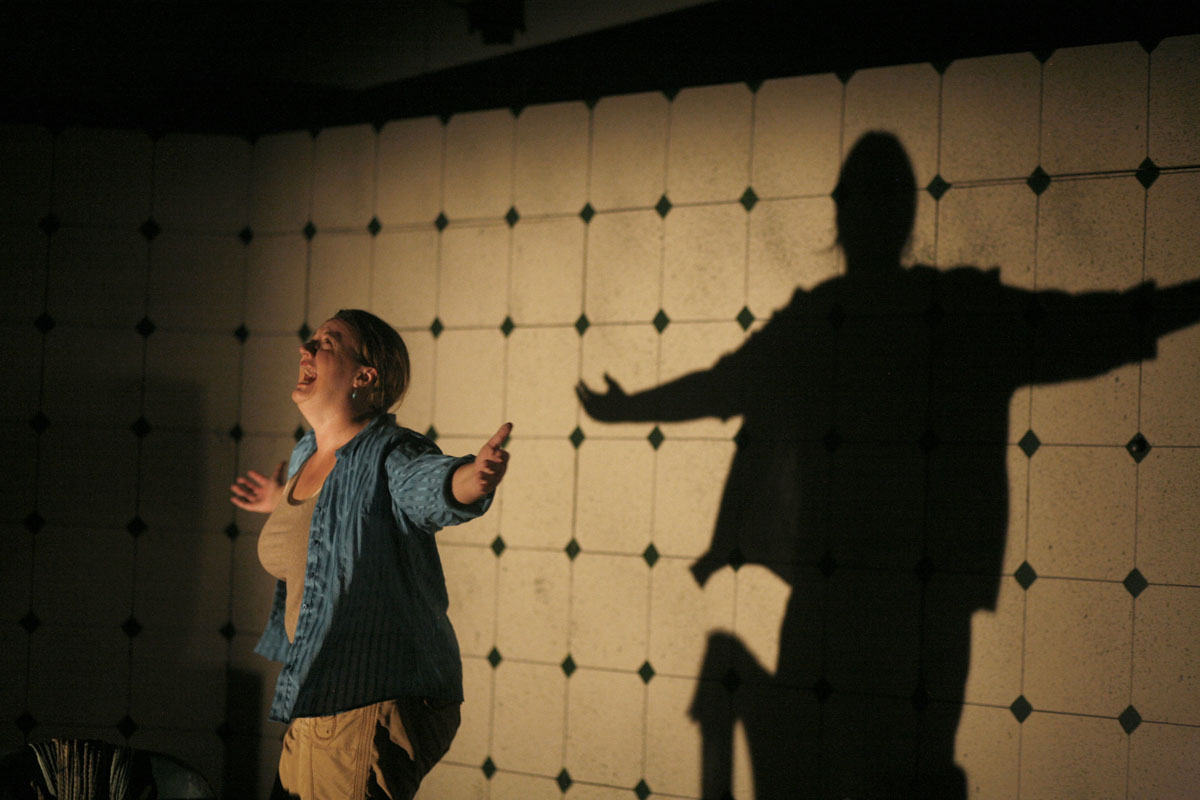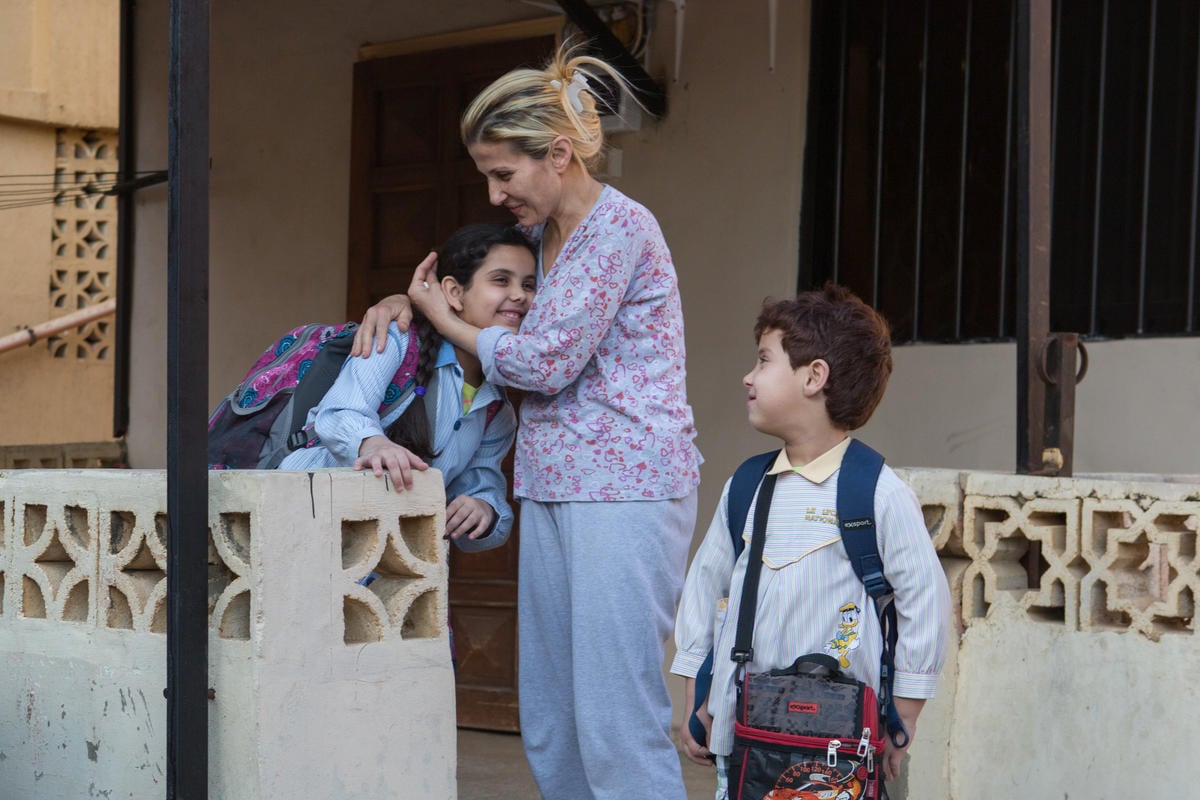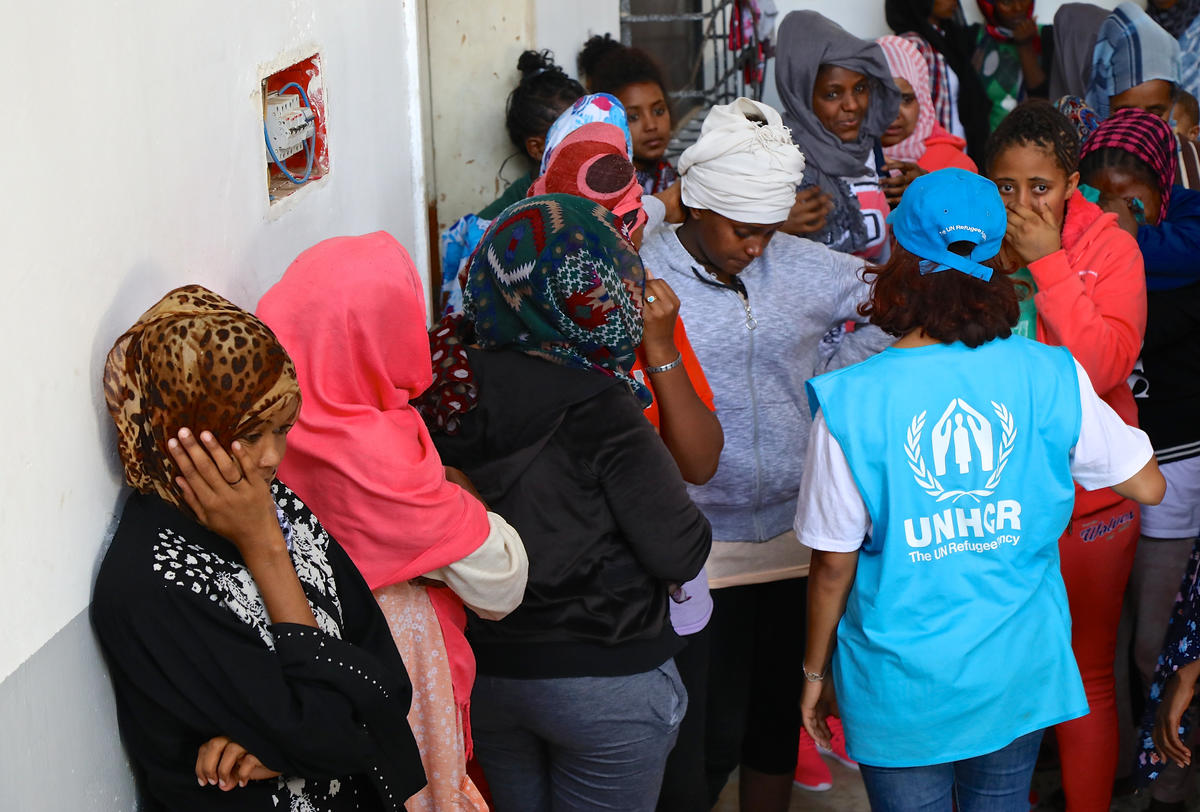Q&A: One-woman show gives voice to stories of Iraqi refugees
Q&A: One-woman show gives voice to stories of Iraqi refugees

Kim Schultz is an actress, writer, teacher and comedian who performs in No Place Called Home, a one-woman play about Iraqi refugees that she wrote after a trip to the Middle East. The trip was sponsored by the New York-based NGO Intersections International, which works to promote peace and understanding. Andrea Lancaster, an intern with the Washington office of UNHCR recently spoke with Kim Shultz. Excerpts from their conversation:
Can you tell me about the trip that inspired you to write the play?
I was invited by Intersections International as part of their Iraqi Voices Amplification Project to go to Jordan, Lebanon and Syria for 3 weeks and meet with Iraqi refugees and hear their stories. There were 8 artists who went on the trip. We all went to hear the stories of the Iraqis and come back and create art back in the States inspired by the experience, hoping to shed some light on and give voice to the refugees. When we came back I wrote the play, which turned out to be a love story for the Iraqis in general and one Iraqi in particular.
Was there any specific interaction that particularly affected you?
I was completely blown away by the generosity of all the Iraqi's that I met. They have nothing and they're trying to give us food and tea and candy and the last of anything they had. One particular story was a family in Jordan, the whole family was gathered around, and they were telling us these stories, they were all trying to fight to get in to tell their story. We started asking about music they might have brought with them from Iraq. They said they didn't have any memories about music, it was too hard. Then, someone started singing something and the rest of the family joined in and before we knew it we were all up on our feet dancing and singing and there was this rare moment of joy and at one point during this dancing, one of us accidentally knocked over the tea set. I went to go pick it up and help clean up and the mother looked at me, grabbed my arm and said "No, dance." It was a pretty powerful moment and showed how the arts can heal and hopefully, in this case, affect change. That's really what Intersections is trying to do - to affect change through art.
What do you hope the audience takes away from seeing your play?
I hope they take away the idea that they can do something, that the problem isn't too big and that if we see ourselves in the other that this is not an unfixable problem. There are people that are waiting for us to help them and my hope for the show is that people will recognize themselves in the people I put on stage and then recognize their own power - that they too can do something that can help.
What is it like to play both the play's narrator and 11 different characters?
My director and I had discussions and really worked on how and why I'm doing this. And the point is to get people to see that we are all, in fact, the same. One of the challenges of course in playing 11 different Iraqi people is trying to make each of them unique and real. And then I tell my own story which is the story of Omar, the one Iraqi that I fell for, and I think people might be surprised when they see the show because it's actually a love story.
So far, you've performed the play in New York. Do you have any plans to bring it elsewhere?
Yes, we hopefully are going to be bringing it to DC in the late winter and we're trying to tour it nationally. The goal is to get the whole country aware of the issue. The DC part of that is very important, as is taking it to the United States at large, to go to both universities and theatres across the country and share the stories of the Iraqi refugees.
Do you think that after this tour you'll continue your advocacy for the refugee issue?
I do. This trip changed me, I don't know how you can have a trip like this and not be changed, and this was an unexpected change. I thought I'd go over and write a play and come back and perform it and that would be that. I'm connected to refugee issues as a whole now. So yes, this whole experience has changed me and I certainly will be continuing my advocacy efforts in whatever way I can. I would love to go back and do follow-up stories with the families. It has touched my heart and I can't go back to the way it was before.








